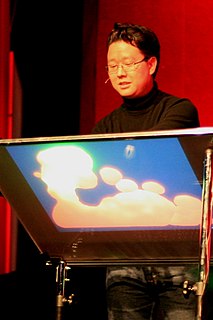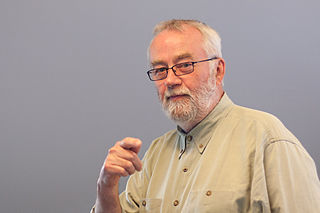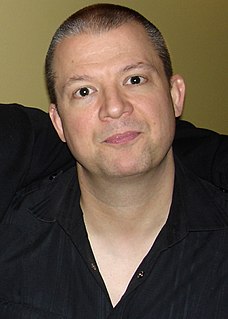A Quote by Jefferson Han
Multi-touch-sensing was designed to allow nontechies to do masterful things while allowing power users to be even more virtuosic.
Related Quotes
I don’t think that anyone has really told (people) what design is. It doesn’t occur to most people that everything is designed--that every building and everything they touch in the world is designed. Even foods are designed now. So in the process of helping people understand this, making them more aware of the fact that the world around us is something that somebody has control of, perhaps they can feel some sense of control, too. I think that’s a nice ambition.
That's what Judith Herman is saying, and she's absolutely right. Power then breeds an intensification of all because the power can never be absolute power - to some extent it's stymied - but the isolation while in power becomes even more dangerous. Think of it as a vicious circle. The power intensifies these tendencies and the tendencies become more dangerous because of the power.
What connects architecture and music is that neither one is really an object. It's more like an ambience, a surrounding and a context. You can do other things while you're listening to music and of course, you can do other things while you're in the middle of architecture. The notion of multi-attention seems to me like it's the keynote to the beginning of the 21st century.
For anyone with the traits - of feeling himself victimized, of seeking to be the strongman who resolves everything, yet sees truth only through his own self and negates all other truth outside of it - is bound to become more malignant when he has power. Power then breeds an intensification of all this because the power can never be absolute power - to some extent it's stymied - but the isolation while in power becomes even more dangerous. Think of it as a vicious circle. The power intensifies these tendencies and the tendencies become more dangerous because of the power.
Even those who claim the Bible's inerrancy make distinctions between Scriptural edicts, sensing that some passages - the Ten Commandments, say, or a belief in Christ's divinity - are central to Christian faith, while others are more culturally specific and may be modified to accommodate modern life.
My eyes already touch the sunny hill. Going far ahead of the road I have begun. So we are grasped by what we cannot grasp; it has inner light, even from a distance- and charges us, even if we do not reach it, into something else, which, hardly sensing it, we already are; a gesture waves us on answering our own wave... but what we feel is the wind in our faces.
This is an extraordinary book of unique psychological power. It reveals not only scholarship and sophistication of the author, but deep and intimate knowledge of the recesses of the human psyche. By masterful juxtaposition of evocative images, poetry, and selected quotes from scholars, Flesh and Blood seems to engage both the right and left hemispheres in an unprecedented dialogue. The result is a multi-dimensional, almost holographic picture of the primordial foundations of the human mind.






























